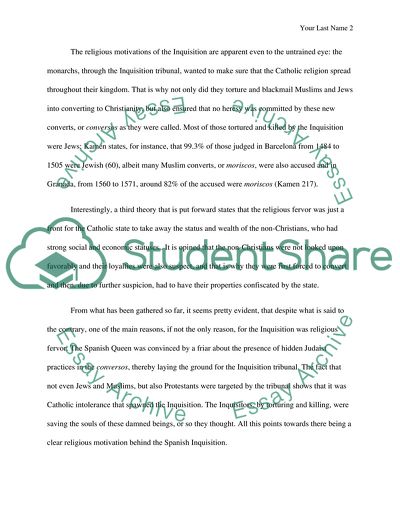Was the Spanish Inquisition Politically, Socially, or Religiously Essay. Retrieved from https://studentshare.org/history/1566378-was-the-spanish-inquisition-politically-socially-or-religiously-motivated
Was the Spanish Inquisition Politically, Socially, or Religiously Essay. https://studentshare.org/history/1566378-was-the-spanish-inquisition-politically-socially-or-religiously-motivated.


